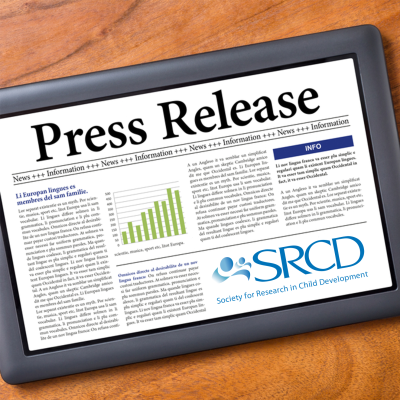Stronger Working Memory and Reduced Sexual Risk-Taking in Adolescents
PRESS RELEASE / CHILD DEVELOPMENT: Embargoed for Release on June 17, 2015
Teenagers vary substantially in their ability to control impulses and regulate their behavior. Adolescents who have difficulty with impulse control may be more prone to risky sexual behavior, with serious consequences such as sexually transmitted diseases and unintended pregnancies. A new study has found that individual differences in working memory can predict both early sexual activity and unprotected sexual involvement during adolescence.
Working memory— the system in the brain that allows individuals to draw on and use information to plan and make decisions – develops through childhood and adolescence. The new study found that adolescents with weaker working memory have more difficulty controlling their impulsive urges and considering the consequences of their behaviors.
The study was carried out by researchers at the University of Oregon, the University of Pennsylvania, and the Children’s Hospital of Philadelphia. It appears in the journal Child Development.
Prior research in this field has linked impulsivity and lack of self-control to risky behaviors during adolescence. This study builds on earlier findings, focusing instead on cognitive abilities, such as the ability to concentrate on tasks and filter out distractions, which rely on working memory.
“We extended previous findings by showing for the first time that individuals who have preexisting weakness in working memory are more likely to have difficulty controlling impulsive tendencies in early to mid-adolescence,” explains Atika Khurana, assistant professor of counseling psychology and human services at the University of Oregon, who led the study. “Furthermore, changes in these impulsive tendencies are associated with early and unprotected sex in adolescents, even after taking into account parents’ socioeconomic status, involvement, and monitoring of sexual behavior.”
The study followed 360 adolescents (ages 12-15, from a range of racial/ethnic backgrounds, and from families of low- to mid-socioeconomic status) for two years, examining the effects of working memory (measured at the start of the study) on changes in the youth’s self-control and sexually risky behavior. Researchers assessed working memory using tasks that examined the youth’s ability to maintain attentional focus on information relevant to a task. Impulsivity was measured using a behavioral task that assessed the adolescents’ ability to delay gratification as well as self-reports of tendencies to act without thinking and seek excitement (known as sensation seeking). Using privacy enhancing, computer-assisted self-interviewing techniques, youths also provided self-reports on their risky sexual involvement (i.e., what age they were when they first had intercourse and whether they engaged in unprotected sex).
Youth with weaker working memory at the start of the study reported larger increases in impulsive tendencies over the follow-up period, which in turn boosted their likelihood of early and unprotected sexual activity. Adolescents with weak working memory were likely to have greater difficulty regulating dominant impulses; for example, the desire to have sex outweighed the risks of longer-term consequences, such as sexually transmitted infections and unintended pregnancy. High sensation seeking wasn’t tied to weak working memory and didn’t increase adolescents’ likelihood of sexual risk taking. Parental variables such as socioeconomic status and involvement in their children’s lives were related to both working memory and sexually risky behavior, but the link between working memory and sexual risk taking held despite taking these influences into account.
“Our findings identify alternative ways to intervene preventively,” notes Dan Romer, research director of the Annenberg Public Policy Center at the University of Pennsylvania, the lead investigator of the longitudinal project on which the study was based. “For adolescents who have weak ability to override strong impulses, improvements in working memory may provide a pathway to greater control over risky sexual behavior. Certain parenting practices, characterized by nurturing and responsive involvement, have been shown to support the development of working memory. Interventions could aim to strengthen these types of parenting practices as well. ”
The National Institute on Drug Abuse funded the study.
###
Summarized from Child Development, Stronger Working Memory Reduces Sexual Risk Taking in Adolescents, Even After Controlling for Parental Influences by Khurana, A (University of Oregon), Romer, D (University of Pennsylvania), Betancourt, LM, Brodsky, NL, Gianetta, JM, and Hurt, H (The Children’s Hospital of Philadelphia). Copyright 2015 The Society for Research in Child Development, Inc. All rights reserved.


